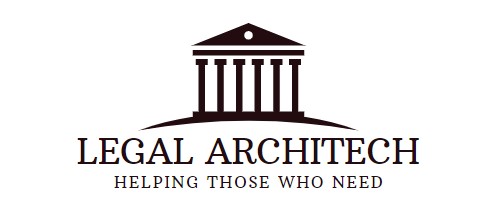Non-lawyers who need help drafting legal documents, for example, a power of attorney, an independent contractor agreement or a residential lease contract, can be intimidated because legal documents are not always understandable for everyone.
Find out how creating custom templates and legal documents using plain, understandable language will help non-lawyers understand legal documents and make legal processes easier.
Other benefits that stem from custom templates and plain language include fewer disputes over ambiguous terms. This benefit will allow non-lawyers to contribute more money and time to other vital activities.
Custom Templates
There is a misconception that custom templates, especially legal contracts, are word-for-word legal documents or contracts recycled from client to client. Instead, a custom template is an outline of a legal document with blank or customizable fillable spaces to be inserted with information depending on an individual client’s needs.
The blank areas are surrounded by common legal language and standards that are customary for that type of document. These templates are based on what kind of law is practiced and conform to the applicable state laws.
Custom templates not only help create legal documents easier but also help a non-lawyer to understand them. In addition, the chances of creating a legal document with errors that could result in a lawsuit decrease exponentially when using a custom template. Here are examples of documents that can be created using custom templates.
Powers of Attorney
This custom template allows an individual, the principal, to appoint another person, the agent, to make financial decisions if needed. The principal can select an agent with Medical Powers of Attorney or Advanced Health Care Directives to make medical care and healthcare decisions for the principal, who may not be able to make those decisions for themselves. This custom template allows the principal to adjust the following information:
- Applicable state power of attorney form
- Power of attorney type and terms
- Principal details
- Individual who is preparing the document
- Signing details
- Agent details, abilities and terms
- Witnessing details
Independent Contractor Agreements
This custom template is an agreement between a self-employed or freelance contractor and their client. A custom template of this agreement will allow the independent contractor to adjust information in the contract, such as:
- Length of service and what the work entails
- Independent contractor details
- Invoice payment terms
- Expense payment agreement
- Intellectual property and confidentiality understanding
- Signing details
Residential Lease Agreements
These custom templates create an understanding between a tenant and landlord when a tenant takes temporary possession of the landlord’s property. Adjustments can be made to these types of information in this custom template:
- Applicable state residential lease agreement form
- Types of lease agreements
- Property details
- Landlord details
- Tenant details
- Length of contract
- Rent amount and payment agreement
- Security deposit agreement
- Other fees agreement
- Pet details
- Utility payment agreement
- Property maintenance agreement
- Sublease agreement
- Additional information
- Date effective
Plain and Understandable Language
Another part of legal documents or contracts that may be intimidating to non-lawyers is the incomprehensible words, phrases and legal jargon that forms them. For example, phrases like “heretofore” and “notwithstanding anything to the contrary herein” can create confusion and unnecessary disputes.
Legal documents can contain anomalies, such as instances of using all capitalization of words to make specific clauses more noticeable. In addition, legal documents frequently have extended definitions in the middle of sentences, a technique called center-embedding. Finally, the passive voice is also used regularly, making the document less understandable.
Since 1972, there has been a common consensus of maneuvering toward using plain language in the legal field to form legal documents that are not intimidating to non-lawyers.
According to the Harvard Business Review, President Nixon insisted that “layman’s terms” be used in the Federal Register. Since then, Presidents and government agencies have ordered that plain English be used when drafting government regulations and other types of government documents, such as security disclosure documents.
Businesses and jobs have been created based on turning document legalese into an understandable language for non-lawyers, such as:
- Teachers who teach plain language in legal writing in law schools
- Writers who are rewriting documents for paying clients
- Consultants who are helping law firms, businesses, and government entities to help develop precedents and documents
If non-lawyers can read and understand a contract, this helps in various ways:
- There are fewer disputes clogging the court systems because ambiguity has been eliminated.
- The time it takes to negotiate a contract is significantly lower.
- Non-lawyers can negotiate an agreement without the help of lawyers.
Custom templates and legal documents formed in plain, understandable language can provide non-lawyers with the confidence to conduct simple legal procedures. For example, drafting unambiguous powers of attorney, independent contractor agreements or leasing agreements can be accomplished and understood by non-lawyers, generating fewer disputes and freeing up time and money for other constructive activities.




